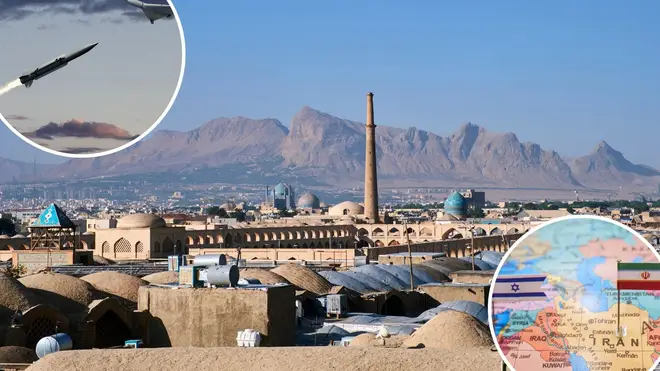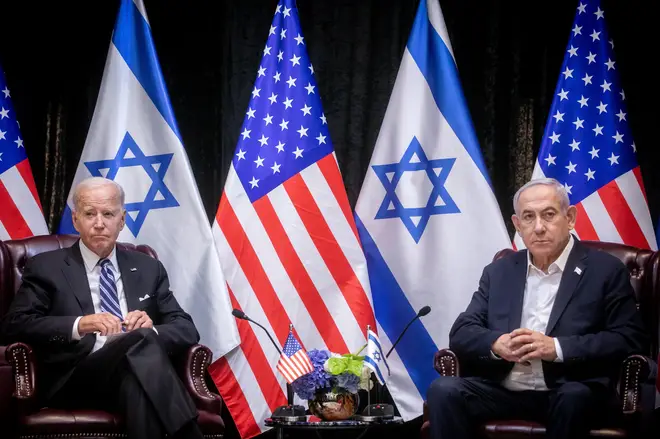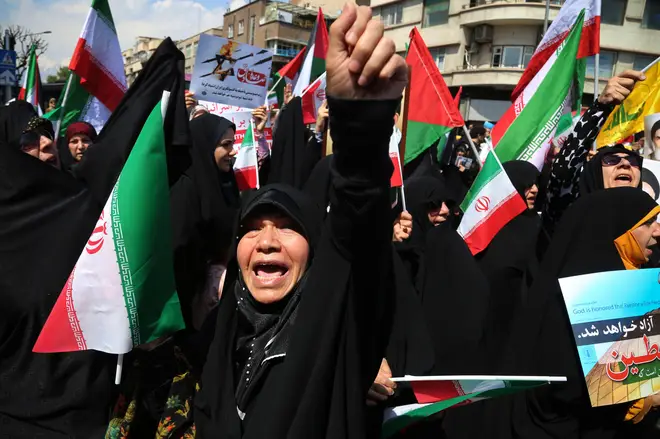
James O'Brien 10am - 1pm
20 April 2024, 08:31 | Updated: 20 April 2024, 08:38

Hopes have been raised that a full scale middle eastern conflict can be avoided - after Iran did not retaliate following a presumed Israeli drone attack near an airbase in Isfahan.
Both have continued to down play an apparent missile strike near an airbase in the central Iranian city of Isfahan.
Tehran has played down the strike, calling it an "infiltration" and confirmed no one was hurt or injured.
While, Tel Aviv has declined to confirm whether it was responsible.
It comes after tension between the regional rivals has skyrocketed, with an Israeli attack on an Iranian compound in Syria and Iran launch an unprecedented assault against Israel.

Professor Sadegh Zibakalam at the University of Tehran thinks it is a positive sign.
"Some Iranians have already felt that we are not going to retaliate.
"You could say that the first round of confrontation between Tehran and Tel Aviv has ended."
'Balancing act'
General Lord Richard Dannatt is a former chief of the General Staff.
He spoke of "balancing act" from Netanyahu.
"He's under pressure from the more extreme elements in his cabinet to retaliate but equally he knows he's got to keep support from the West, particularly the United States."
Iran's air defences were triggered early on Friday in response to reports of explosions near the city of Isfahan, the state-run IRNA news agency reported.
Explosions were heard just after 5am local time in the central province of Isfahan, Iranian state media has said.

Air defence intercepted three drones in the region, with no major damage sustained to buildings or facilities according to reports.
Tensions between the two states were raised following Israel’s air strike on Iran’s consulate in Damascus on April 1 - a strike that killed 13 people, including two top Iranian generals.
In response, Iran fired around 300 miles and drones at Israel on Saturday - the majority of which were shot down by Israeli air defences.
A senior Iranian official has now said the country has no immediate plan for retaliation against Israel.
There has been no confirmation of the strike from Israel following reports of the explosions.
There have also been no reports of injuries emerging from the country, as Iranian media reinforced that all nuclear facilities remain intact.
Two US officials have also confirmed the missile strikes, according to reports from US media outlets NBC and CBS News.
Iran says that its airspace has now reopened and that it’s business as usual at all major airports in the country.
The US has now restricted travel for its embassy staff in Israel "out of an abundance of caution" following the retaliatory strikes.